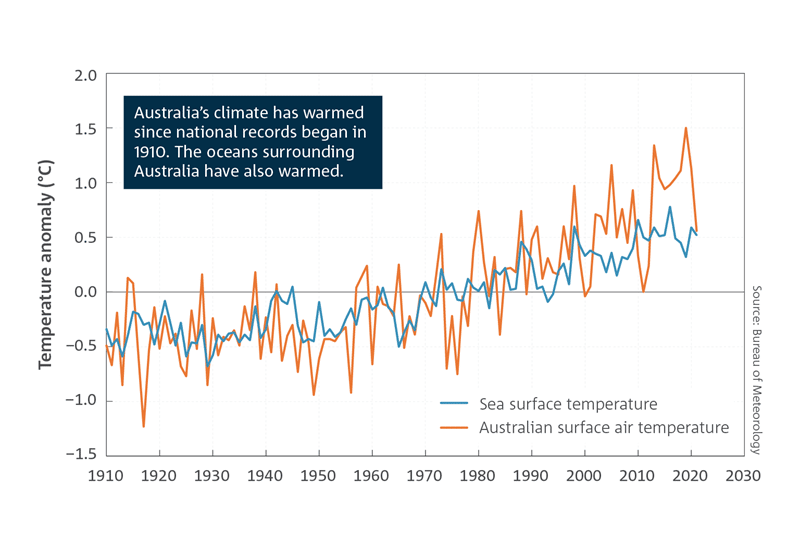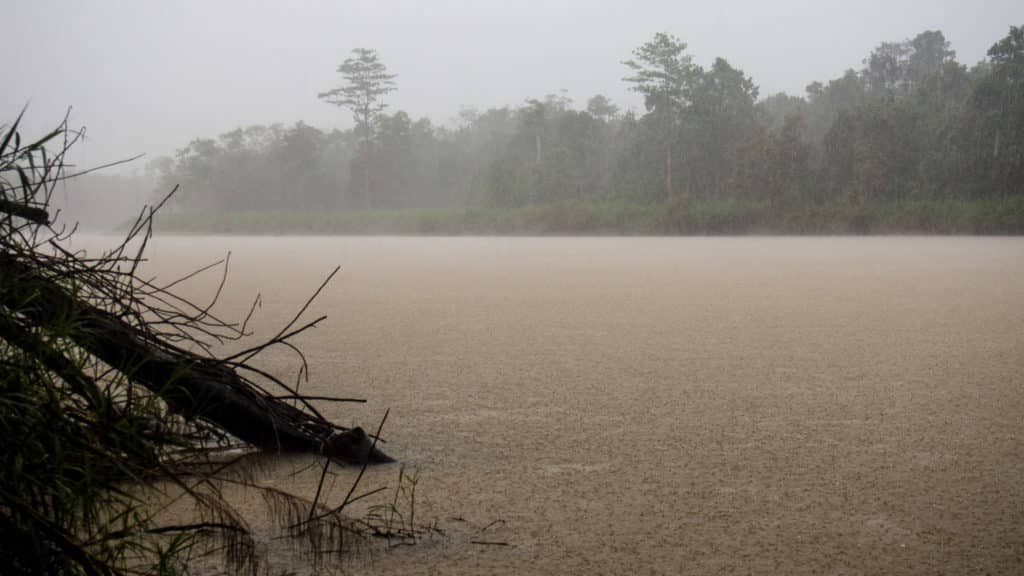Australia bushfires and other climate change-induced weather events will be more frequent and intense in the coming year, a new report warned on Wednesday. 2022 was Sydney’s wettest year on record in nearly two centuries.
—
A study published on Wednesday warned that Australia would experience a drastic rise in bushfires, floods, and heatwaves in the years ahead as climate change intensifies. Global greenhouse gases in the atmosphere are at the highest levels in at least two million years.
The outcomes of the seventh biennial climate report by the Bureau of Meteorology and the national science agency CSIRO, which analyses year-to-year viability and long-term changes in Australia’s climate, are alarming.
You might also like: 3 Things to Know About Australia Bushfires
Since records began in 1910, temperatures in Australia have increased by an average of 1.47C, leading to more frequent heat events and longer and more intense bushfire seasons. Sea surface temperatures have also increased by an average of 1.05C, resulting in mass coral bleaching events, marine heatwaves, and tropical cyclones.

Line chart of the temperature anomaly relative to the 1961 to 1990 average, in degrees Celsius, from 1910 to 2021, for temperatures over Australia and for sea surface temperatures in the Australian region. Source: CSIRO
Coral reefs play a significant role in ocean habitats and the ecosystem for marine life. But they have suffered devastating and possibly irreversible effects within the last few decades due to a number of man-made activities and influences. Australia is home to the Great Barrier Reef, the world’s largest and longest reef system, and also one of the most threatened. The most notable mass bleaching events occurred in 2016 and 2017, and a stunning 50% of Australia’s famous reef died as a result. While major efforts have since been put in place to reduce coral bleaching, the scale of mortality has proven difficult for the reef system to regrow and replenish.
Sea levels are also rising faster than ever, the report said, increasing the risk of inundation and damage to coastal infrastructure. The northern and southeastern parts of the continent are the most affected by sea level rise.
Australia has also been experiencing increasingly intense weather events that experts attribute to climate change – especially within the last decade – including devastating bushfires and droughts. Simultaneously, the weather phenomenon known as La Niña, which refers to trade winds that blow from the Pacific Ocean that bring more rainfall and cloudiness to Australia, has caused a surge in storms and floods since early 2021. New South Wales and Queensland have experienced several record ‘rain-bombs’. 2022 was Sydney’s wettest year in 164 years.
Featured image: Wikimedia Commons
You might also like: Australia’s Wildlife And Habitats Are Disappearing Rapidly: Report


















